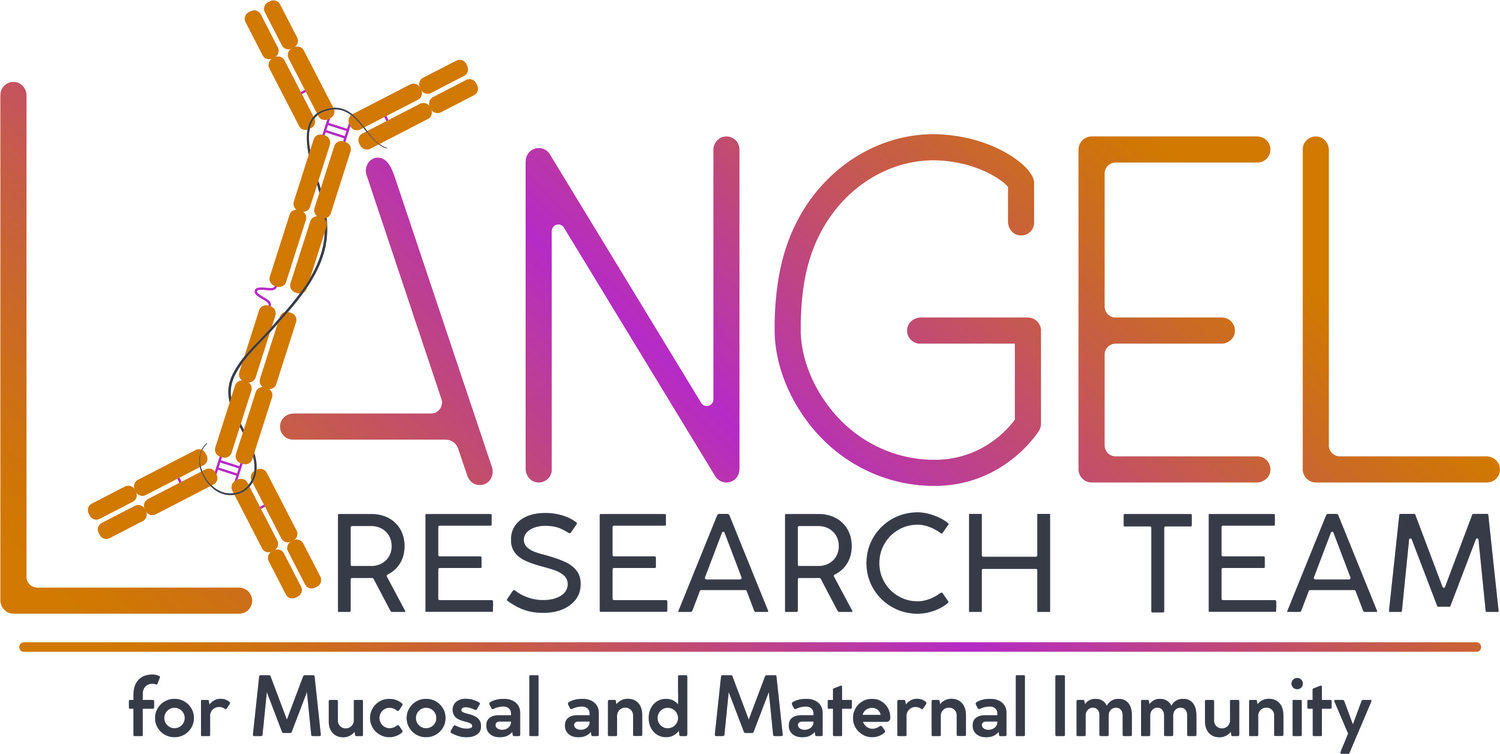About us
Mucosal immunity
We are a dynamic research team dedicated to understanding our immune responses at mucosal surfaces. Mucosal immune responses protect us against invading pathogens, and environmental irritants but also tolerate and are shaped by our commensal microbiota - billions of bacteria, fungi, and viruses living within us. Our research team is particularly interested in B cells that reside in mucosal tissues and the antibodies they produce that end up at mucosal surfaces, interacting with both pathogens and microbiota. Specifically, we are focused on understanding immunoglobulin A (IgA) in all of its forms (monomers, dimers, and secretory) and are designing and testing therapeutic strategies that boost IgA antibodies at mucosal surfaces to inhibit virus replication and transmission, stabilize the microbiota, or all the above!
Moms and babies
As a research team, we have a specific interest in the immune responses of moms and babies. We are working to better understand how maternal B cells and antibodies shape maternal and neonatal immune responses. Specifically, we are interested in the mucosal-mammary gland axis where plasma cells (mostly IgA) from mom’s mucosal tissues migrate to the mammary gland to secrete antibodies in milk. This evolutionary cross talk allows antibacterial and antiviral antibodies that function in mom to contribute to protection and immune development in the suckling infant. Current projects in our lab involve designing immunization strategies that boost breast milk immunity against many viruses, including influenza viruses, rotaviruses, and norovirus. To accomplish this, we are using single cell technologies, animal models, and human clinical samples.
Our lab is currently focused on four main areas
Maternal immunization and lactogenic immunity
Mechanisms of maternal antibody interference
Mucosal immunization and airborne transmission of respiratory viruses
IgA immunobiology
Click below to find more information about each
Our Philosophy.
The goal of our laboratory is to identify correlates of mucosal immune protection against infectious diseases. Our ultimate goal is to contribute to the development/production of mucosal vaccine candidate(s) for human use - with a focus on maternal and pediatric populations. To achieve these collective goals as well as our own individual career goals, fostering an interactive, supportive, collaborative and intellectually engaging environment is key. We will do this by building a research team based on open communication, trust, vulnerability, commitment, responsibility, accountability and of course, fun!
As the leader of the group I (Dr. Stephanie Langel) am committed to the development and well-being of every individual in the lab so that you can achieve your individual goals. Whether you want to stay in academia, go into industry, start a company, work at a non-profit, or be involved in advocacy, we will work together to develop individualized training and mentoring plans to get you where you want to be. I believe in maximizing feedback in both directions that allows for opportunities for growth. Additionally, we will work together to address concerns, or fix barriers that may be impeding your creativity and progress.
The Langel Research Team also believes that our science should reach the public. Therefore, lab members are encouraged to contribute to science communication by writing, speaking, animating or expressing their science through other avenues. Additionally, lab members are encouraged to submit their work to preprint servers before or during submission to peer-reviewed journals. As a team, we will be open to exploring new publishing models and ways of communicating our work.
Cleveland rocks!
We are proudly located in Cleveland, Ohio ranked as one of the most livable cities in the U.S. Frankly, your dollar goes farther here. Cleveland is a mid-sized city on the shores of Lake Erie and is home to nearly 3 million people. The city is notable for
•thriving healthcare and biotechnology industries,
•lively arts and cultural scene,
•low cost of living,
•four-seasons climate,
•wealth of natural resources.
